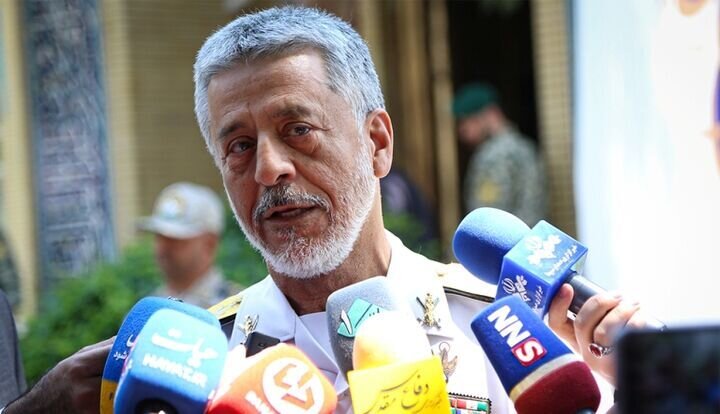TEHRAN – One of Iran’s major accomplishments following the victory of the Islamic Revolution was the establishment of a self-reliant military infrastructure capable of safeguarding the nation against various threats, stated a senior military commander.
Rear Admiral Habibollah Sayyari, the Deputy Chief of Coordination for the Iranian Army, highlighted this milestone during a press briefing at a ceremony honoring fallen army heroes from the Iran-Iraq war in the 1980s.
"Back then when Saddam Hussein was striking the capital Tehran we did not have the missiles to respond and even had to ration bullets. Now we have so many of every weapon that we also get to export them," the military leader said adding that the "the best way to protect the country is to rely on domestic capabilities".
Shortly after the Islamic Revolution, Iran faced significant military vulnerabilities when Iraqi dictator Saddam Hussein, supported by Western powers, launched a full-scale war against the newly established Islamic Republic.
Iran's limited ammunition and weaponry were no match for the sophisticated fighter jets, bombers, and tanks supplied to Baghdad by Western allies. To bolster its defense capabilities, Iran acquired Scud-B and Frog-7 ballistic missiles from Libya, originally developed by the Soviet Union during the Cold War, and received essential training from Syria. Seeking further missile resources, Tehran sent a delegation to North Korea and China in 1985.
Over the following three decades, Iran devoted substantial resources to advancing its weapons technology. The country is now an ascendant producer of missiles, drones and other military weapons in the world. Some reports suggest even huge arms exporters like Russia and China have been replenishing their stockpiles with the help of Iran.
Iran’s military capabilities and its sophisticated arsenal of weapons came under the spotlight recently when the country successfully hit highly-protected military targets deep inside the occupied territories. Tehran’s subsequent success at averting an attack by Israel on its soil further attempt its transformed military position.


No comments:
Post a Comment